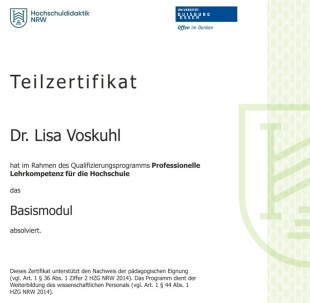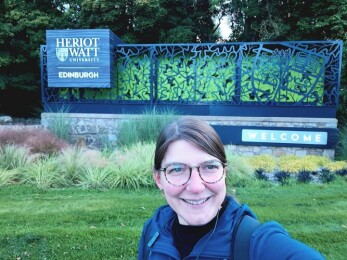Home

Our Research Interests
At the transition zone between two different ecosystems/habitats (e.g. oil/water films), ecologists refer to it as an ecotone. Ecotones can have both a connecting and a barrier effect. In comparison to the surrounding habitats, ecotones may experience altered energy flow, environmental conditions, and the composition of organisms, potentially favoring distinct chemical and biological reactions.
Our research aims to comprehensively explore microbial processes in environmentally relevant ecotones, particularly oil/water and algae phycosphere/water. The focus is on understanding the changes in the taxonomic composition and activities of microbial communities, as well as environmental conditions, between the original habitats and the ecotone, with a specific emphasis on the carbon and nitrogen cycles. We integrate data from other environmental studies, conduct our field studies with enrichment and pure culture experiments, perform environmental sampling, analyze samples in the laboratory, initiate microcosm experiments, and isolate relevant microorganisms.
Currently, our primary questions revolve around:
- Is oil degradation faster in natural oily habitats compared to recently contaminated ones?
- What is the role of hydrocarbon-producing algae and their co-cultivated bacteria?
- What are the dynamics between algae-bacteria in the context of hydrocarbon degradation?
NEWS
Learn more about our group ...

April 2025 - Girls' Day Girls' Day 2025 Project: Algae and bacterial communities: small creatures, big impact!
As part of Girls' Day at the University of Duisburg-Essen (UDE), we were able to take curious young schoolgirls into the fascinating world of science!
Together, Sabina and Lisa led a group of 15 schoolgirls through the workshop “Algal and bacterial communities: small creatures, big impact!”, in which they explored how these microorganisms form communities and work together to break down crude oil.
We are delighted to have contributed to a day full of inspiration, discoveries and scientific curiosity and that we were able to show that environmental microbiology is not only important, but also exciting. A big thank you to everyone who made this event possible and to the young researchers for their enthusiasm and interest in algae and bacteria.
April 2025 - Announcement Basic module of the certificate program “Professional Teaching Competence for the University” completed

Lisa has successfully completed the basic module of the university didactics qualification program “Professional Teaching Competence for the University”.
This program serves the further training of academic staff and supports the proof of pedagogical aptitude in accordance with § 36 para. 1 no. 2 HZG NRW 2014 and promotes central competencies such as learning goal-oriented teaching, transparent examinations, constructive advice for students and innovative developments in teaching and studies.
The certificate provides formal proof of pedagogical competence that is recognized both nationally and internationally.
March 2025 - New funding Daimler and Benz Foundation Scholarship for Postdoctoral Researchers and Junior Professors

Lisa and her project “Warriors of nature - oil-degrading algal-prokaryotic communities from terrestrial and limnic petroleum habitats” have been awarded into the 2025 Postdoctoral and Junior Professorship* Fellowship Program of the Daimler and Benz Foundation. By being accepted into the program, Lisa now has the opportunity to perform research while benefiting from the foundation's support and network.
Everyone is familiar with man-made oil disasters such as the explosion of the Deepwater Horizon drilling platform or damaged oil tankers that spill millions of liters of oil into the environment. But did you know that oil also leaks naturally into nature every day for thousands of years without human intervention and that nature has had time to adapt to these hostile conditions? The world's largest natural oil seep is the Pitch Lake in Trinidad and Tobago, and there are also smaller natural oil wells of this kind in Germany. The research project aims to improve the understanding of oil biodegradation by algal-prokaryotic communities by studying algal isolates and the associated bacteria and archaea (= prokaryotes) from natural oil habitats in Germany. The focus is on researching their complex interactions, their composition and measuring their oil degradation rates in order to assess the potential of these communities for environmental applications, particularly in environmental protection.
January 2025 - Announcement Winners of the 2025 ISME Communications front cover

We are happy to share that one of our microscopy picture has been selected as the front cover for ISME Communications. Our submission won the ISME Call for Microbial Ecology Photos and Videos Competition. Thank you to ISME for this recognition, and to Sabina Marks and Frank Fox who contributed to this achievement.
The photo shows a microscopy picture of microbes thriving in a natural oil seep, an until now understudied habitat.
December 2024 - Announcement Michelle wins the Axel Semrau Bachelor Award

We are proud to announce that Michelle Kulbatzki has won the Axel Semrau Bachelor Award at this year's graduation ceremony of the Water Science study program.
Michelle presented her thesis project, "Investigation of the oil degrading capabilities of algae-bacteria communities from natural oil-associated habitats" which she conducted in our group under the co-supervision of Sabina Marks.
We greatly appreciate Michelles exceptional work and dedication during her thesis and we are delighted to see her achievements recognized. We wish Michelle all the best for her future endeavors! We also congratulate all other graduates and award winners!
September - December 2024 - Announcement Guest researcher at Heriot-Watt University

Lisa is pleased to be a guest researcher at Heriot-Watt University in Edinburgh, Scotland (UK). During her four-month stay, she is collaborating with Professor Tony Gutierrez and his research group at the School of Engineering & Physical Sciences. Our colaboration focuses on the interactions between algae and bacteria in oil degradation. Lisa was warmly welcomed by the group and looks forward to the coming months of collaboration. A special thanks to Miriam for her kind introduction and support. We would like to acknowledge the UDE Postdoc Seed Funding for supporting this valuable experience.
April 2024 - Announcement Prize from Award Forum Junge Spitzenforscher

We are happy to announce that Sabina Marks from the Faculty of Biology and Lisa received recognition at the "Forum Junge Spitzenforscher 2024" (Forum Young Top Researchers) competition for their research project titled "Nature's Oil Warriors."
We were invited to the finals of the competition themed "Resource-Efficient Circular Economy." Our presentation on our research project secured us the fourth position, accompanied by a prize of €2000. The competition was hosted by TU concept GmbH and TU Dortmund, with support from the Industrial Research Foundation, where a panel of five experts decided the awards. We want to thank the whole organization team and the jury for their thorough evaluation. Well done to all teams for their efforts and achievements!"
In our research, we explore the microbial and ecological processes in natural oil leaks and films in water bodies and soil. Using samples collected from natural oil leaks in Germany, we investigate the composition of algae and bacterial communities adapted to oil, examining their roles and rates in oil degradation. Our preliminary findings indicate that algae-bacteria consortia isolated from natural oil leaks can support and accelerate the degradation of human-made oil contaminations.
April 2024 - Accepted manuscript New Paper in FEMS Microbiology Ecology Thematic Issue on Subsurface Microbiology
The study "Imprints of ecological processes in the taxonomic core community: an analysis of naturally replicated microbial communities enclosed in oil", lead by Verena explores how microbial communities in similar environments, namely in 193 tiny water droplets from the Pitch Lake in Trinidad and Tobago, form core communities. These water dropet communities revealed highly variable relative abundances along with a large proportional core community building 68 ± 20 % of the total community.
A dispersal-drift null model forecasted a negative relationship between the proportional core community and compositional variability across dispersal probabilities, contradicting the observed data. This implies that selection predominantly influences the composition of water droplet communities in the Pitch Lake.
February 2024 - Accepted manuscript Sebastians first Paper
Sebastians first paper on "Assessing anaerobic microbial degradation rates of crude light oil with reverse stable isotope labelling (RSIL) and community analysis" was acceped to be published in Front. Microbiomes Sec. Environmental Microbiomes in the Research Topic Ecology, Evolution, and Biodiversity of Microbiomes and Viromes From Extreme Environments.
Our research underscores the effectiveness of the, in the Meckenstock lab developed method, reverse stable isotope labeling (RSIL) in quantifying the breakdown of complex organic substrates (crude oil) occurring at minute rates.
08.01.2024 - UMB Seminar Talk "Diversity and physiology of dissimilatory sulfate-reducing microorganisms"
Dr. Stefan Dyksma from Leibniz Institute - DSMZ-German Collection of Microorganisms and Cell Cultures GmbH presented his work in our first UMB Seminar in 2024.
We heard an interesting talk about about the diversity on a global scale and deduced ecophysiology of microorganisms possessing the capability for dissimilatory sulfate/sulfite reduction. He also presented his recent study about "Oxygen respiration and polysaccharide degradation by a sulfate-reducing acidobacterium" showing that sulfate reduction and oxygen respiration can cooccur in one organism, organic polymers can be utilized during sulfate reduction, and the anaerobic mineralization of organic matter may not always involve multiple steps.
December 2023 - New funding New Funding by Fonds der Chemischen Industrie

We are pleased to announce that the Fonds der Chemischen Industrie has awarded us a grant for material costs for the project "Extraction and analysis of alkanes and (poly)aromatic hydrocarbon compounds from algae".
October 2023 - Conference 2nd Joint Symposium of ISEB & ISSM 2023

Nadia, Rainer and Lisa presented current research from the Aquatic Microbiology group at the 2nd Joint Symposium of the International Societies for Environmental Biogeochemistry & Subsurface Microbiology 2023 in Banff, Alberta, Canada.
- "Confirming the Mechanism of Anaerobic Phenanthrene Degradation: A Validation Study" presented by Nadia
- "Chemo-organo-autotrophic degradation of aromatic hydrocarbons indicates a new type of bacterial metabolism" presented by Rainer
- "Microbial activities along a 20 million-year-old pristine oil reservoir" presened by Lisa
September 2023 - Excursion Visit of "Deutsches Erdölmuseum Wietze"

We visited the Deutsche Erdölmuseum in Wietze. The museum provides a fascinating journey through the evolution of the oil industry and history of Lower Saxony in Germany.
The museum is definitely worth a visit for the whole family. You will learn, among other things, what oil is, how much oil is in everyday products, and how oil is produced today and how it was produced in the past.
Natural oil leakage in a german forrest Oil sampling

June 2023 - New funding UDE Postdoc Seed Funding

We have are happy to announce that we have been awarded by the UDE Postdoc Seed Funding for our project on "Microbial processes in natural oil leaks".
Our research project aims to investigate the microbial ecological processes occurring in natural oil leaks and films on water bodies, as well as the transition zone between two different ecosystems/habitats (oil/water).

“All sorts of things can happen when you’re open to new ideas and playing around with things.”

